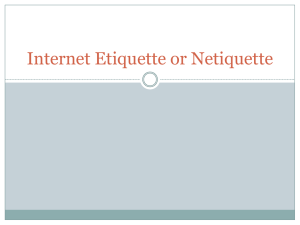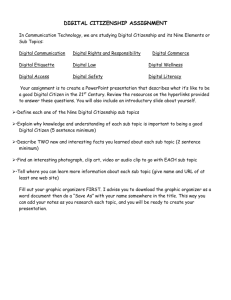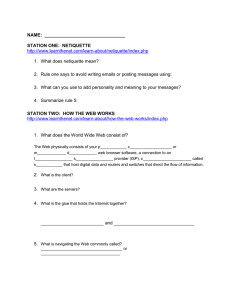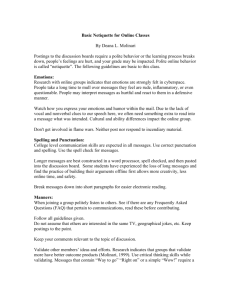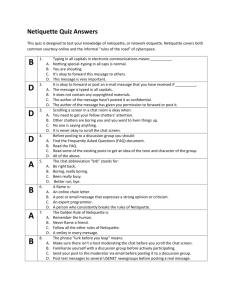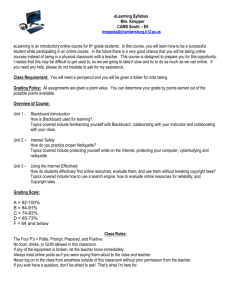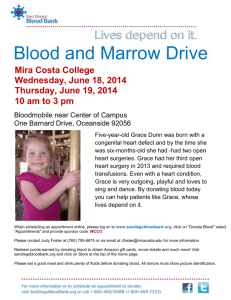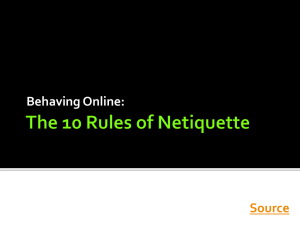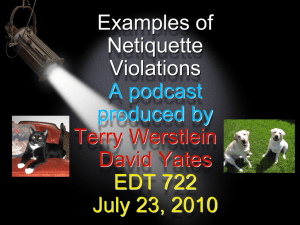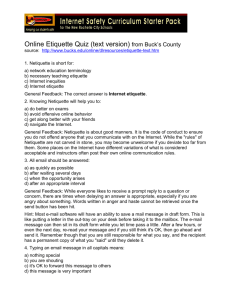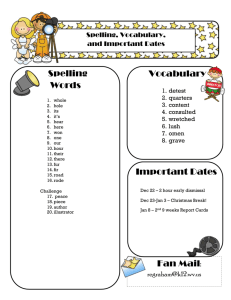SYLLABUS in brief, specifics subject to change English 43C World
advertisement
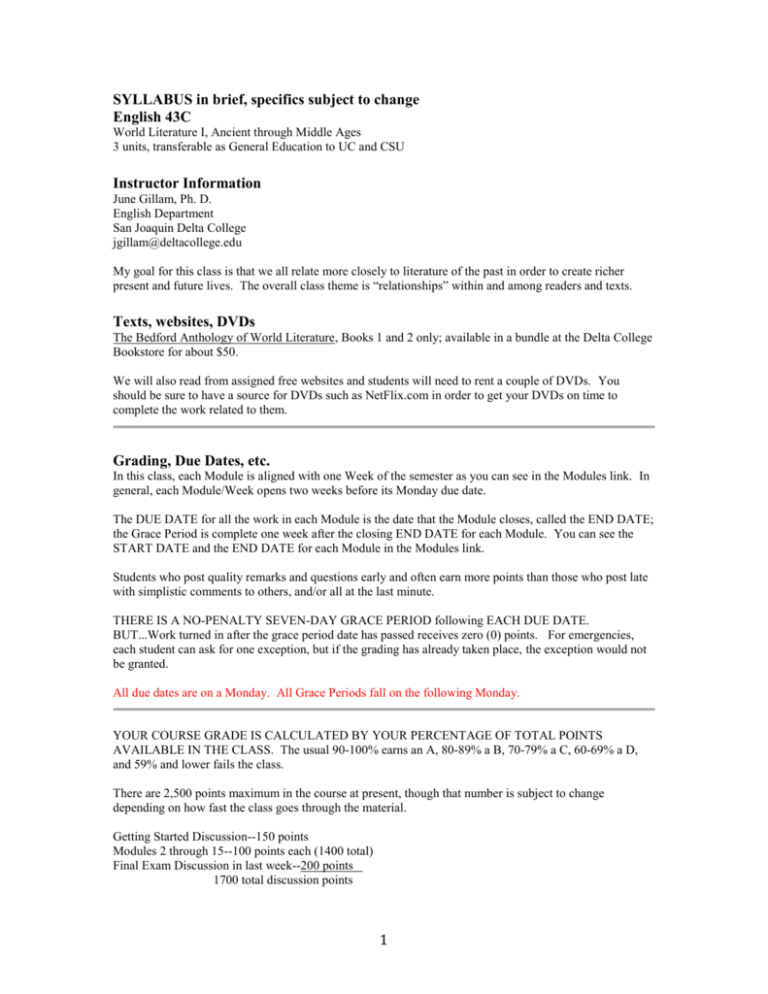
SYLLABUS in brief, specifics subject to change English 43C World Literature I, Ancient through Middle Ages 3 units, transferable as General Education to UC and CSU Instructor Information June Gillam, Ph. D. English Department San Joaquin Delta College jgillam@deltacollege.edu My goal for this class is that we all relate more closely to literature of the past in order to create richer present and future lives. The overall class theme is “relationships” within and among readers and texts. Texts, websites, DVDs The Bedford Anthology of World Literature, Books 1 and 2 only; available in a bundle at the Delta College Bookstore for about $50. We will also read from assigned free websites and students will need to rent a couple of DVDs. You should be sure to have a source for DVDs such as NetFlix.com in order to get your DVDs on time to complete the work related to them. Grading, Due Dates, etc. In this class, each Module is aligned with one Week of the semester as you can see in the Modules link. In general, each Module/Week opens two weeks before its Monday due date. The DUE DATE for all the work in each Module is the date that the Module closes, called the END DATE; the Grace Period is complete one week after the closing END DATE for each Module. You can see the START DATE and the END DATE for each Module in the Modules link. Students who post quality remarks and questions early and often earn more points than those who post late with simplistic comments to others, and/or all at the last minute. THERE IS A NO-PENALTY SEVEN-DAY GRACE PERIOD following EACH DUE DATE. BUT...Work turned in after the grace period date has passed receives zero (0) points. For emergencies, each student can ask for one exception, but if the grading has already taken place, the exception would not be granted. All due dates are on a Monday. All Grace Periods fall on the following Monday. YOUR COURSE GRADE IS CALCULATED BY YOUR PERCENTAGE OF TOTAL POINTS AVAILABLE IN THE CLASS. The usual 90-100% earns an A, 80-89% a B, 70-79% a C, 60-69% a D, and 59% and lower fails the class. There are 2,500 points maximum in the course at present, though that number is subject to change depending on how fast the class goes through the material. Getting Started Discussion--150 points Modules 2 through 15--100 points each (1400 total) Final Exam Discussion in last week--200 points 1700 total discussion points 1 Weekly CheckIn PM Feedback to Instructor Subjective Essay 150 points 300 points Final Exam (multiple choice) 300 points Each Discussion Task has a maximum number of points attached. The discussions have titles similar to the Modules/Weeks they go with, so you should be able to locate them easily. Early posts that show original, creative and/or in-depth thought will most likely earn maximum points; those coming in at the last minute and/or offering simple surface comments will earn minimum points. I will generally ask you for a Major Post and several Minor Posts as part of each Discussion Assignment, plus Reply posts to your classmates. You will "turn in" your essay to turnitin.com and not here in etudes, but your essay points will show up here in the etudes Gradebook. The Final Multiple Choice Exam will be taken from all the readings in the semester and be worth 300 points. We will have a group study discussion before the final exam to help you prepare. There will be extra credit opportunities as proposed by individual students for my consideration. These proposals must be written and submitted no later than two weeks BEFORE the last date to drop with a W grade--Nov. 9 for fall 2009. Extra credit can earn up to 200 points, depending on the scope and quality of the project. Remember that plagiarized work earns zero points, whether in discussions or in essays; make sure you use your own ideas/works and/or quote/give credit to others for their ideas/words. PLAGIARISM ISSUES: Plagiarism results when writers use words and ideas from other authors without giving them credit. It is important and even fun in a way to learn the art of citing other writers, weaving their ideas into your own with grace. All work is expected to be the student's own unless another source is cited. Course essays will be submitted to turnitin.com a plagiarism detection website. Work that is plagiarized will result in a failing grade for the assignment. If two essays are found to be plagiarized, a student fails the course. Student Conduct Students are expected to follow guidelines as shown in the ** ETUDES Code of Conduct Policy ** In addition, students should observe good manners by following suggestions at Netiquette sites such as at Master the Basics of Netiquette: http://www.learnthenet.com/english/html/09netiqt.htm Email Netiquette: http://www.learnthenet.com/english/html/65mailet.htm 32 Most Important Email Etiquette Tips: http://www.emailreplies.com/ The Core Rules of Netiquette: http://www.albion.com/netiquette/corerules.html Catalog Description 2 A survey course of world literature in translation beginning with the earliest extant texts in Mesopotamia and extending through the seventeenth century. 3
